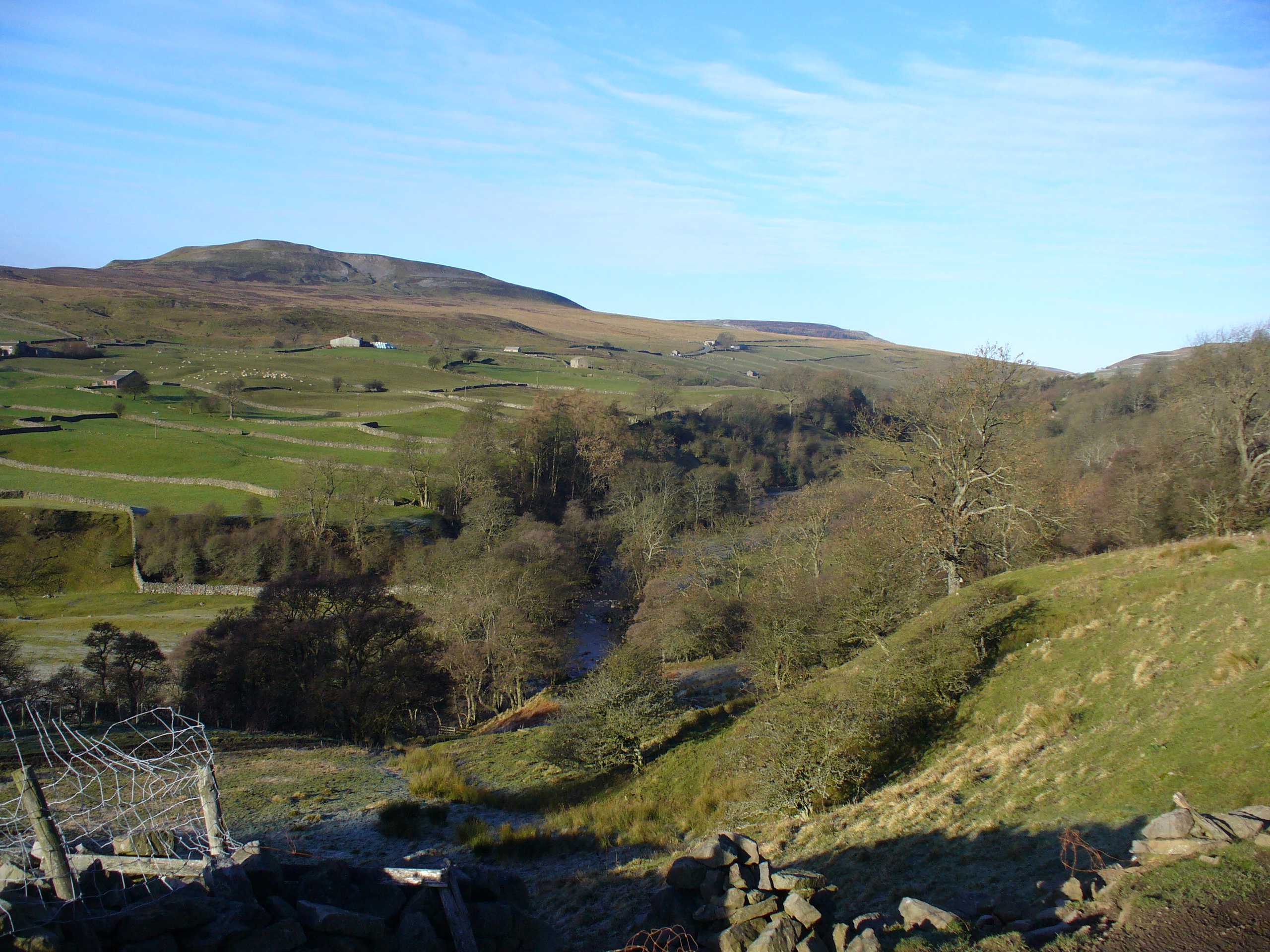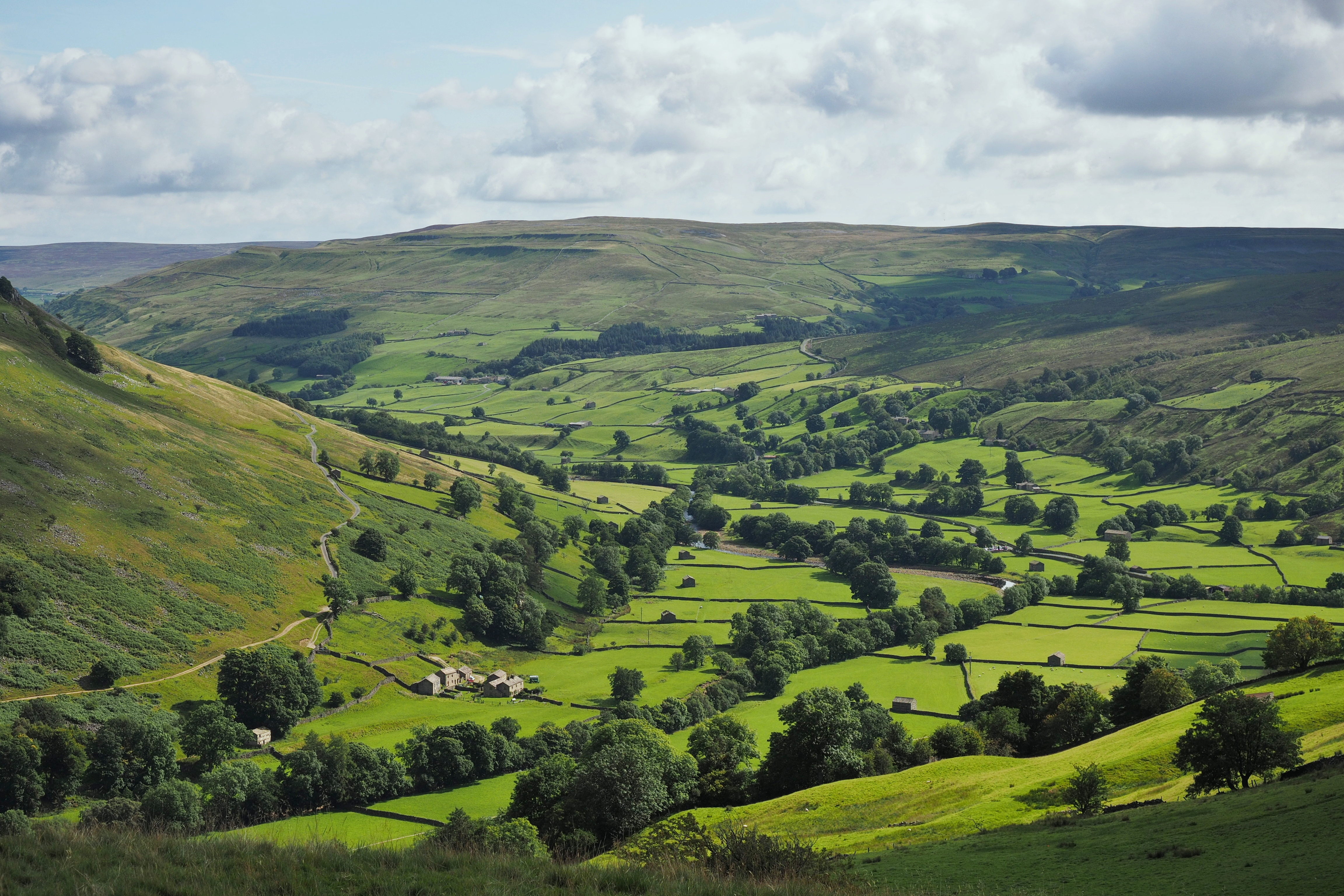|
Arkle Beck
Arkle Beck is the stream running through the valley of Arkengarthdale in the Yorkshire Dales, England. It is a tributary of the River Swale, which it joins just past Reeth at Grinton Bridge. The beck itself has several tributaries which include: *Great Punchard Gill *William's Gill *Annaside Beck *Roe Beck In 1986, a section of the meadow alongside Arkle Beck at Whaw Whaw is a hamlet in Arkengarthdale in North Yorkshire, England. It is one of few settlements in the dale and is one of the smallest. Its name derives from the Old Norse of ''Kvi'' and ''Hagi'', which means the enclosure of the sheep. It is abou ... was designated as a site of special scientific interest (SSSI). References Rivers of North Yorkshire Arkengarthdale {{England-river-stub ... [...More Info...] [...Related Items...] OR: [Wikipedia] [Google] [Baidu] |
Whaw
Whaw is a hamlet in Arkengarthdale in North Yorkshire, England. It is one of few settlements in the dale and is one of the smallest. Its name derives from the Old Norse of ''Kvi'' and ''Hagi'', which means the enclosure of the sheep. It is about north of Langthwaite and north west of Reeth. The adjacent Arkle Beck Meadows form a Site of Special Scientific Interest. The hillsides around Whaw are scarred with the remnants of lead mining and former hushes Hushing is an ancient and historic mining method using a flood or torrent of water to reveal mineral veins. The method was applied in several ways, both in prospecting for ores, and for their exploitation. Mineral veins are often hidden below ... are still in evidence. During the 18th and 19th centuries, the hamlet was (and the whole of Arkengarthdale) were subject to a higher population because of the miners working in the hills. In 1840, a Wesleyan chapel was built in Whaw, this survives but no longer as a religious h ... [...More Info...] [...Related Items...] OR: [Wikipedia] [Google] [Baidu] |
Arkengarthdale
Arkengarthdale is a dale, or valley, on the east side of the Pennines in North Yorkshire, England. Running roughly north-west to south-east, it is the valley of the Arkle Beck, and is the northernmost of the Yorkshire Dales. It is a subsidiary dale to Swaledale, which it joins at Reeth. The history of the dale, its people, and farming, lead mining, and local crafts is displayed and documented in the Swaledale Museum in Reeth. On its way up the dale from Reeth the unclassified road crosses many other small streams and their catchments, such as Great Punchard Gill, Roe Beck, Annaside Beck, and William Gill. It passes through several small settlements: Raw, Arkle Town, Langthwaite (where a narrow back road leads to Booze), Eskeleth and Whaw. At Eskeleth Bridge another unclassified road forks north-east (towards Barnard Castle); this also joins a minor road running along the northern side of the dale to Whaw. Beyond Whaw is the most sparsely populated upper part of Arkengarthda ... [...More Info...] [...Related Items...] OR: [Wikipedia] [Google] [Baidu] |
River Swale
The River Swale in Yorkshire, England, is a major tributary of the River Ure, which becomes the River Ouse, that empties into the North Sea via the Humber Estuary. The river gives its name to Swaledale, the valley through which it flows. The river and its valley are home to many types of flora and fauna typical to the Yorkshire Dales. Like similar rivers in the region, the river carves through several types of rock and has features typical of both river and glacial erosion. The River Swale has been a contributory factor in the settlements that have been recorded throughout its history. It has provided water to aid in the raising of crops and livestock, but also in the various mining activities that have occurred since Roman times and before. The river is said to be the fastest flowing in England and its levels have been known to rise in 20 minutes. Annual rainfall figures average 1800 mm p.a. in the headwaters and 1300 mm p.a. in the lower waters over a drop of 14 ... [...More Info...] [...Related Items...] OR: [Wikipedia] [Google] [Baidu] |
England
England is a country that is part of the United Kingdom. It shares land borders with Wales to its west and Scotland to its north. The Irish Sea lies northwest and the Celtic Sea to the southwest. It is separated from continental Europe by the North Sea to the east and the English Channel to the south. The country covers five-eighths of the island of Great Britain, which lies in the North Atlantic, and includes over 100 smaller islands, such as the Isles of Scilly and the Isle of Wight. The area now called England was first inhabited by modern humans during the Upper Paleolithic period, but takes its name from the Angles, a Germanic tribe deriving its name from the Anglia peninsula, who settled during the 5th and 6th centuries. England became a unified state in the 10th century and has had a significant cultural and legal impact on the wider world since the Age of Discovery, which began during the 15th century. The English language, the Anglican Church, and Engli ... [...More Info...] [...Related Items...] OR: [Wikipedia] [Google] [Baidu] |
Yorkshire Dales
The Yorkshire Dales is an upland area of the Pennines in the Historic counties of England, historic county of Yorkshire, England, most of it in the Yorkshire Dales National Park created in 1954. The Dales comprise river valleys and the hills rising from the Vale of York westwards to the hilltops of the Pennine Drainage divide, watershed. In Ribblesdale, Dentdale and Garsdale, the area extends westwards across the watershed, but most of the valleys drain eastwards to the Vale of York, into the River Ouse, Yorkshire, Ouse and the Humber. The extensive limestone cave systems are a major area for caving in the UK and numerous walking trails run through the hills and dales. Etymology The word ''Dale (landform), dale'', like ''dell'', is derived from the Old English word ''dæl''. It has cognates in the North Germanic languages, Nordic/Germanic languages, Germanic words for valley (''dal'', ''tal''), and occurs in valley names across Yorkshire and Northern England. Usage here may have ... [...More Info...] [...Related Items...] OR: [Wikipedia] [Google] [Baidu] |
Reeth
Reeth is a village west of Richmond in the Richmondshire district of North Yorkshire, England, in the civil parish of Reeth, Fremington and Healaugh. Historically part of the North Riding of Yorkshire, it is the principal settlement of upper Swaledale. Etymology The origin of the name ''Reeth'' is unclear. It is possibly derived from the Germanic for 'place by the stream', although this claim can neither be confirmed nor refuted. Reeth could also have been derived from the Cumbric ''rith'' (cf. ''ryd'' in Modern Welsh, ''rys'' in Cornish ), meaning 'Ford'. Either would make sense as Reeth is located near two shallow rivers. History In Saxon times, Reeth was only a settlement on the forest edge, but by the time of the Norman conquest it had grown sufficiently in importance to be noted in the ''Domesday Book''. Later it became a centre for hand-knitting and the local lead industry was controlled from here, but it was always a market centre for the local farming community. ... [...More Info...] [...Related Items...] OR: [Wikipedia] [Google] [Baidu] |
Rivers Of North Yorkshire
A river is a natural flowing watercourse, usually freshwater, flowing towards an ocean, sea, lake or another river. In some cases, a river flows into the ground and becomes dry at the end of its course without reaching another body of water. Small rivers can be referred to using names such as creek, brook, rivulet, and rill. There are no official definitions for the generic term river as applied to geographic features, although in some countries or communities a stream is defined by its size. Many names for small rivers are specific to geographic location; examples are "run" in some parts of the United States, "burn" in Scotland and northeast England, and "beck" in northern England. Sometimes a river is defined as being larger than a creek, but not always: the language is vague. Rivers are part of the water cycle. Water generally collects in a river from precipitation through a drainage basin from surface runoff and other sources such as groundwater recharge, springs, a ... [...More Info...] [...Related Items...] OR: [Wikipedia] [Google] [Baidu] |




